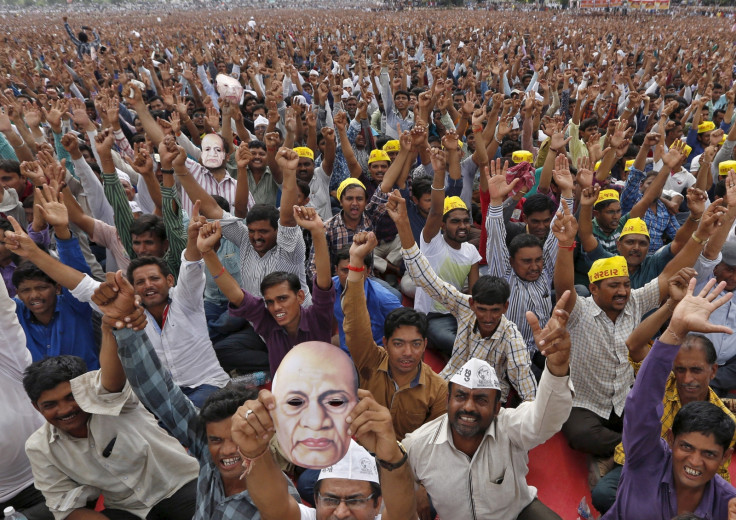India: Who are the Patels and why are they demanding downward mobility in Gujarat?

As the unrest in Gujarat continues to dominate India's headlines with members of the Patidar community – led by 22-year-old Hardik Patel – turning out en masse to demand categorisation as Other Backward Classes (OBCs), or affirmative action, IBTimes UK asks: Who are the Patels?
Patels or Patidars comprise some 20 percent of Gujarat's 63m strong population, but their reputation extends far beyond the north western state in India. Traditionally a farming community which made significant gains during the agricultural boom of the last decade, Patels have also excelled as doctors, lawyers and entrepreneurs and a large number of them have emigrated abroad, notably to the US, UK and parts of Africa. Despite being seen as a financial powerhouse (Patels own 70 percent of Surat's 4,000 or so diamond cutting and polishing units, according to the Times of India), upper castes such as Brahmins are considered the most educated.
The Patidar community can be found throughout major cities in India from the economic hub in Mumbai to the capital, New Delhi. But the group's home turf in Gujarat is where they are historically strongest. The clan boasts 44 of the state's 187 Members of Legislative Assembly (MLA) and on a national scale, three cabinet ministers and four ministers of state.
Patels are perceived to hold sway over state politics, with Hardik Patel issuing an ultimatum to Gujarati Chief Minister, Anandiben Patel that unless the demand of OBC status is met, the community will withdraw its support for the ruling Bharatiya Janata Party (BJP). Summing up the clan's influence, The Indian Express notes: "The fact that the government has not so far acceeded to the demands of the agitators may result in some sections of Patidars abandoning the BJP in the coming local body elections. Patidars can potentially swing at least 80 of the 182 Assembly constituencies."
Why is the Patidar community agitating for Other Backward Class status?
Although it seems odd to want to move backwards, the desire to be classed as OBC stems from the associate perks, such as state sector jobs and places in state educational institutions. As NDTV's Shika Trivedi writes:
"One reason the Patels want to be OBCs, believes social scientist Achyut Yagnik, who is based in Ahmedabad, is to get their children into medical and engineering colleges or institutions providing technical education which could make it easier for them to migrate abroad, as well as find jobs locally. The fact that they are poorly represented in these sectors is because the Patels have traditionally chosen to go into business at a young age, instead of pursuing higher studies. Now they are looking for a change. Because somewhere the Vibrant Gujarat story has disappointed even the most ardent BJP fans in the community, particularly amongst the youth."
Yet Amnesty International's India head, Aakar Patel says the Patidar demand for OBC status is risible. "They have had access to modernity and capital for a century and a half," he told the LA Times. "Almost every person in central Gujarat, where Patels dominate, has family members in the US and UK."
Who are the Patels internationally?
Internationally, Patels have been at the heart of the Indian diaspora's expansion and are synonymous with commerce and success. There are some 145,000 Patels in the US and over 250,000 in the UK, where it is one of the most common surnames.
The Patels in the US have a reputation for dominating the motel industry of which they own 25 percent in the country, according to Quartz India.
In the UK, Patels have traditionally owned newsagents, but after much hard-work and self-imposed austerity, Patidar families were able to send their children to receive tertiary education. Patel is the second most common surname among doctors and the clan occupies places in the healthcare sector, cabinet and rich list.
© Copyright IBTimes 2025. All rights reserved.






















